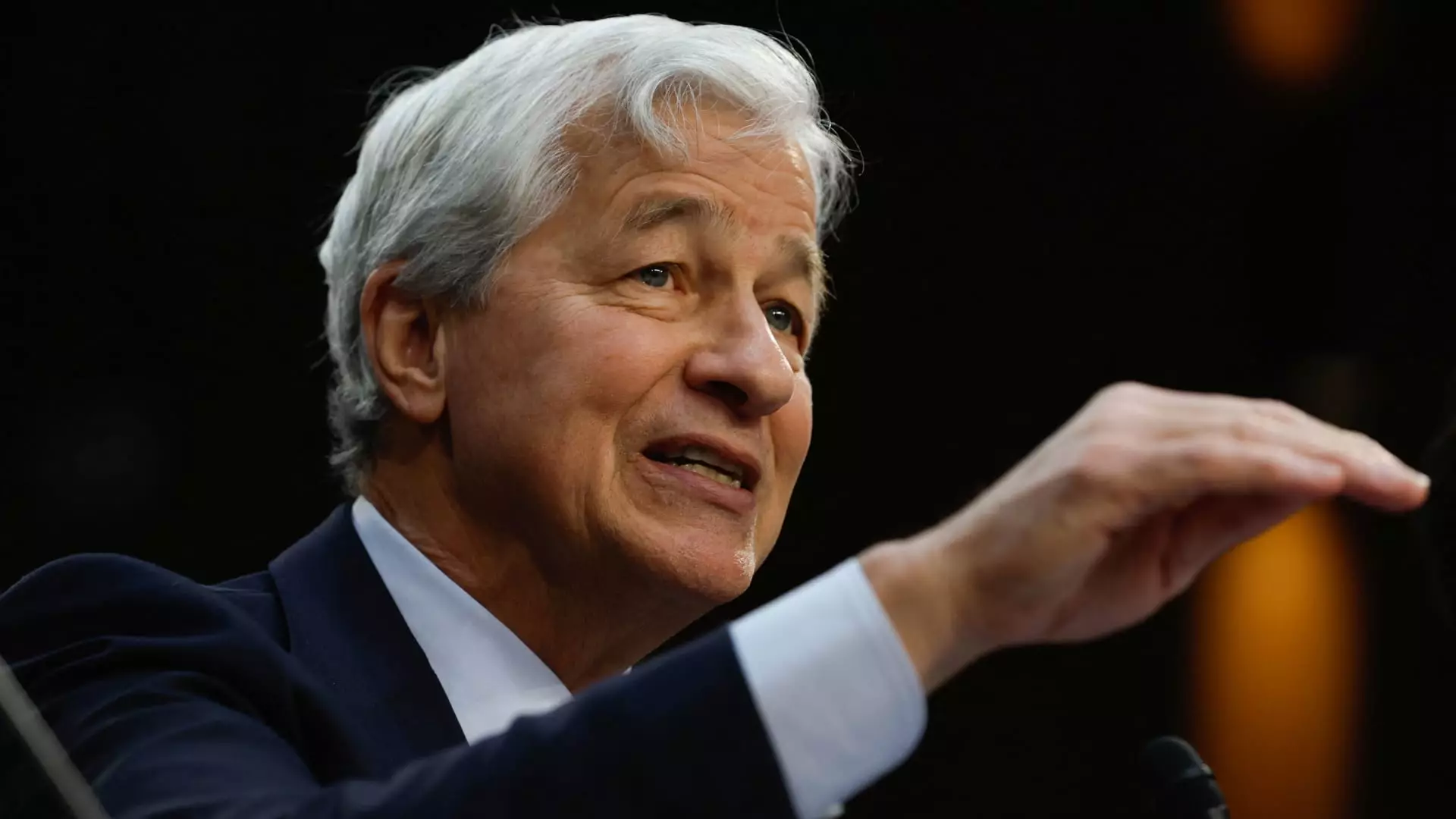The atmosphere surrounding corporate America is growing more tumultuous by the day. Jamie Dimon, CEO of JPMorgan Chase, recently offered a sobering forecast, predicting a significant downturn in corporate earnings primarily due to the chaotic trade negotiations initiated under the Trump administration. A seasoned executive in an ever-volatile market, Dimon’s candid remarks reflect not merely speculation but an unsettling truth that resonates across industries. The implications of such uncertainty could reverberate throughout the economy, manifesting as cautious sentiment among business leaders and investors alike.
Declining Guidance: A Harbinger of Woe
Dimon’s comments about the apparent withdrawal of corporate earnings guidance from various companies paint a stark picture of the prevailing unease. In times of relative security, companies usually provide clear forecasts to their investors to inspire confidence. However, the current climate has bred hesitance; some firms are opting for silence over speculation. This lack of guidance indicates a deep-seated anxiety—companies don’t want to mislead investors amid such unpredictable circumstances, choosing instead to play it safe. Analysts have dramatically adjusted S&P 500 earnings estimates downward, some projecting a distressing flatline or even negative growth in the near future. Dimon’s prediction that we may soon see analysts slashing these forecasts once again serves as a warning sign, indicating that we are on shaky ground as corporate America grapples with external pressures.
Investor Sentiment: A Wait-and-See Approach
If Dimon’s assertions hold water, we may witness a marked shift in investor behavior. The trade war has catalyzed a collective pullback from acquisitions and new investments, as companies adopt a wait-and-see approach. The uncertainty brought about by trade tensions is not merely a passing phase; it encourages businesses to abandon long-term strategies in lieu of short-term optimization tactics. This reassessment signals a systemic shift, as companies like Walmart and Delta tighten their investment strategies, reflecting a macroeconomic landscape fraught with anxiety.
Consumer Behavior: Cautious Yet Driven
Interestingly, even amidst corporate apprehension, consumer behavior offers a glimmer of optimism. In the face of looming tariffs, consumers are showing signs of increased spending, perhaps in a bid to mitigate the anticipated rise in prices for goods. This juxtaposition of consumer confidence against corporate caution paints a complicated picture of the current economic environment. It raises questions about sustainability: Can consumer spending buoy the economy while businesses remain entrenched in a climate of uncertainty?
The Need for Political Clarity
Ultimately, Dimon’s remarks highlight a critical and often-ignored aspect of corporate strategy: the need for clarity from political leaders regarding trade policies. The existing level of policy uncertainty hampers long-term planning and damages the very fabric of trust that underpins our economic system. As businesses remain skittish, we must advocate for a more stable and predictable political landscape to foster growth and innovation. It is essential to bridge the gap between the corporate and political realms, creating an environment conducive to sustainable investment and economic improvement.

